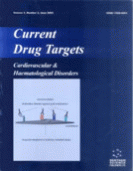Abstract
Antibody-mediated barriers to renal transplantation, including donor specific anti-HLA and anti-blood group antibodies, have become an increasingly important issue over the last forty years as the organ shortage has continued to expand. The inevitable result of the unmet demand for compatible organs has been a continuous increase in recipient waiting times. Over the last decade, two treatment strategies have been developed to address this problem. These regimens rely on the immunomodulatory properties of intravenous immunoglobulin (IVIG) administered alone at relatively high doses, or at lower doses in combination with the non-selective depletion of antibodies from plasmapheresis. Both protocols have been successfully used for desensitization of patients with donor-specific anti-HLA antibody and have allowed for renal transplantation with excellent outcomes. The combined strategy of plasmapheresis/IVIG has also been successfully employed for renal transplantation in recipients of ABO blood group incompatible kidneys. This review will provide an overview of these therapies and their application to incompatible renal transplantation.
Keywords: abo incompatible, positive crossmatch, renal transplantation, desensitization, plasmapheresis, intravenous immunoglobulin
 2
2













